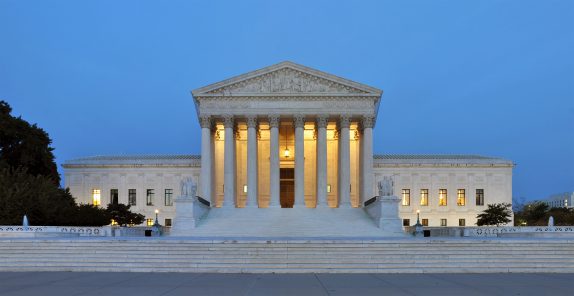Today, the United States Supreme Court held in Digital Realty Trust Inc. v. Paul Somers that the 2010 Dodd-Frank Wall Street Reform and Consumer Protection Act (“Dodd-Frank”) provides “whistleblower” protection only to those employees who report misconduct to the Securities and Exchange Commission (“SEC”). Dodd-Frank does not protect employees who only report alleged misconduct internally. The Ninth Circuit previously held that Paul Somers was protected under Dodd-Frank because he was terminated shortly after reporting suspected securities-law violations to senior management of his employer, Digital Realty. Accordingly, the Ninth Circuit affirmed the District Court’s denial of Digital Realty’s motion to dismiss and joined the Second Circuit in construing the definition of “whistleblower” activity broadly to include internal complaints.
Rejecting the Ninth Circuit’s interpretation, the Supreme Court ruled that the anti-retaliation provisions of Dodd-Frank do not extend to an individual who has not reported a violation of the securities laws to the SEC. (See Slip Op. at p.2.) The Court reasoned that Dodd-Frank’s “clear and conclusive” definition of whistleblower—a person who provides “information relating to a violation of the securities laws to the Commission”—must be narrowly interpreted. Id. at p. 9 (emphasis added by the Court). The Court further reasoned that the narrow definition is consistent with the core objective of Dodd-Frank—to aid the Commission’s enforcement efforts by “‘motivat[ing] people who know of securities law violations to tell the SEC.’” Id. at p. 11 (emphasis added by the Court).
Justice Thomas, with Justice Alito and Justice Gorsuch, agreed with the majority’s ruling to the extent it relied on Dodd-Frank’s statutory language to resolve the issue, but he did not join in the portion of the majority’s opinion which discussed the legislative purpose and intent of Dodd-Frank. Justice Sotomayor’s concurrence, in which Justice Breyer joined, responded solely to Justice Thomas’s concurrence, noting that the majority’s reliance on the legislative objectives of Dodd-Frank is appropriate even when a statute’s language is clear and conclusive because it enables the Court to corroborate its understanding of the text.
This morning’s decision resolved a circuit split between the Second, Fifth and Ninth Circuits, upholding the Fifth Circuit’s interpretation in Asadi v. G.E. Energy (USA), L.L.C., 720 F.3d 620 (2013) and reversing the Ninth Circuit’s judgment above and rejecting the Second Circuit’s holding in Berman v. Neo@Ogilvy LLC, 801 F.3d 145 (2013). Please note that the Court’s opinion does not alter the separate anti-retaliation provisions of the Sarbanes-Oxley Act of 2002, which protects all “employees” who report misconduct to the SEC, any other federal agency, Congress, or an internal supervisor.
A copy of today’s opinion can be found here.
– Keesal, Young & Logan Employment Group
This information has been prepared by Keesal, Young & Logan for informational purposes only and is not legal advice. Transmission of the information is not intended to create, and receipt does not constitute, an attorney-client relationship between you and Keesal, Young & Logan. You should not act upon this information without seeking professional counsel.
